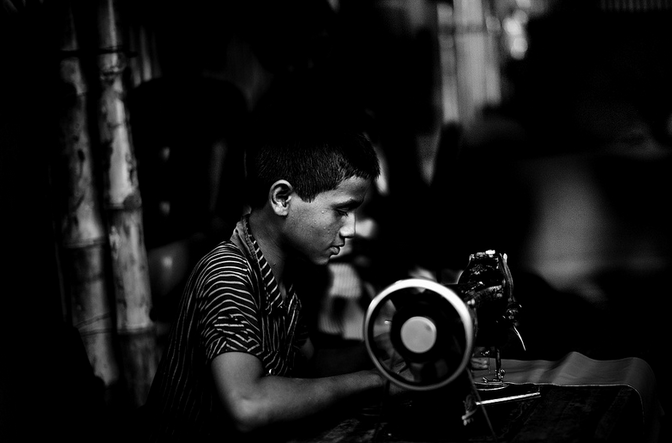This article is written by Eklavya Malvai, a student of Amity Law School, Noida. He is also an Assistant Editor at blog.ipleaders.in
INTRODUCTION
Testifying by a witness is considered as key evidence in any court proceeding, helping the court to decide the final matter. However, for a witness to testify, there is a basic criterion he/she must fulfil, i.e., to be of a sane mind and be competent enough to testify.
In the past, we have often observed that one of the key witnesses to be a child, who was party to the event, but the admissibility of his testimony was not absolute in nature.
The Indian judicial system has laid down some rules to determine the competence of a testimony of a child witness, which has also been provided by the Indian Evidence act and other relevant judgements.
QUESTION OF ADMISSIBILITY
For a testimony to be admissible, it must fulfil certain conditions, such as;
- A witness should be competent enough;
- Must understand the question put before;
- Must comprehend and give pragmatic and rational answers to the same.
The final discretion lies on the court to comprehend and determined whether the testimony shall be permissible or not, keeping the mind the account of the given facts and situation.
Hence, a court of law does prohibit anyone from testifying, as long as they are able to satisfy the above conditions to the satisfaction of the court of law. Thus, we have often questioned as to why the testimony of a child is a subject matter to various questions.
TESTIMONY OF A CHILD
A child or a person in his years of development is often subject to certain conditions, depending upon the conditions he lives in and nurtured in, keeping in mind the socio-economic contrasts every person is brought up, in India.
A child’s testimony can vary as it can be doctored by way of torture and coercing, and is not subject to absolute self-authority and assessment. As children, the mental development is tender in nature and can vary in different situations.
Hence, a pertinent question here to ask would be, ‘How does one define ‘maturity’ of an individual?’
Maturity is subject to the background and environment in which one has been born and brought up in, hence, maturity is subjective and varies among various individuals.
In a landmark case, Suresh v. the State of U.P established that a testimony from a 5-year-old child shall also be admissible, so long as the child is able to comprehend and understand the question of the given issue. Hence, it declared that there is no minimum required age for a person to legally testify in the court of law.
Section 118 of the Indian Evidence Act mentions who is considered as competent enough to testify in the court of law; ‘All persons shall be competent to testify unless the Court considers that they are prevented from understanding the questions put to them, or from giving rational answers to those questions, by tender years…”
Hence, the above provision clearly states that one shall testify in case competent enough if considered otherwise by the court of law.

COMPETENCE OF THE TESTIMONY
The reason behind the court’s apprehension of a child’s testimony arises due to various factors. Children are often considered to be tender and at a volatile age where certain instances can make a lasting impact on the child’s memory and the way he perceives things from thereon. The court needs to take into account various factors before making the testimony admissible, such as, making sure that the child clearly understands the nuances of the circumstance, what led to the occurrence of those circumstance(s). Children often tend to be submissive due to the pressure and the tension surrounding the entire scenario, and the entire judicial proceedings can take a toll on a sensitive mind, leading to breakdown and change in testimony. Hence, the court needs to take care of intricate aspects, making sure that the child’s testimony is not affected in any way.
Principle of “Voir dire test”
“Voir dire Test”: A concept derived from the Anglo-Norman phrase, which refers to ‘Oath to tell the truth’. The word voir (or voire), in this combination, comes from French which states, “That which is true”.
The test is conducted for the purpose of deciding the competency of a child witness. Usually, the judge puts questions to the child witness to test his veracity and to verify that the facts build up with the progression of the accompanying facts.
This test is a precursor to determining the maturity and capability of the child to act in the full capacity as a witness to testify in front of the judge, hence, the judge may examine the child by posing certain questions which may not be related to the ongoing case. This is done in order to determine the absolute competency of the child witness, which may be limited in nature otherwise.
In the case, ‘Rameshwar S/o Kalyan Singh v. The State of Rajasthan’[1], the court held that every person is competent to be a witness in the court of law, unless incapable of understanding the question put before him/her, keeping in mind the provisions of Section 118 of the Indian Evidence Act.
Capability to understand at a young age is more likely to be dependent and to be formed at the opinion and perception of what others say and portray, due to which the testimony of a child is more likely to be modified or altered. Hence, dealing with a child witness is of key importance. This was also brought up in the landmark case, “Nivrutti Pandurang Kokate & Ors. v. The State of Maharashtra”, where the Supreme Court held that the testimony of a child witness must be scrutinised so as to make sure that it was not given under any situation of coercion and undue influence, and must corroborate other given evidence as well.
Child testimony in cases of sexual abuse and molestation
In the recent past, the cases of child sexual abuse and child molestation have come under the limelight. A 2007 survey by the Ministry of Women and Child Development showed that 53% of children in India had been sexually abused[2], bringing us to our next question, “To what extent can the child testify in his own case of sexual abuse/molestation?”
Children and infants are often victims of sexual abuse and molestation, and often are scared and apprehensive about disclosing the same to their parents and peers. This was only one indication of the increasing public pressure for the law, which was passed by both houses of Parliament on May 22, 2012. The Protection of Children against Sexual Offences Act (POCSO)[3] came into effect on Children’s Day, November 14, 2012, yet, its applicability remains to be a slippery slope, as children and infants are not very well equipped to ascertain and understand what they might have gone through.
Recently, the Supreme Court of the United States of the America, in its landmark judgement, Ohio Vs. Clark[4], made it easier for prosecutors to bring child-abuse cases without young children having to testify, allowing jurors to hear from teachers whose students told them they were abused. The unanimous judgement came in the case of a 3½-year-old Ohio boy whose wounds were visible to teachers at his day care centre. The boy was too young to testify, and thus, the court allowed the teachers to testify on his behalf, as the matter was immediately reported to the teachers by the child.
The veracity of the statement given by the child is always questionable, but other systems must be devised to verify the given testimony, making sure that it is unaffected by other external factors and is dealt with extreme care and caution.
CONCLUSION
As per the principles of the voir dire test, a judge must ascertain and verify the competency of the child to testify in the court of law. What must be understood is that children of such young and tender age must be dealt with extreme care and sensitivity, which might not be the expertise of the judge handling the case.
Trained personnel’s and counsellors must work with the court, who can deal with the child in a prescribed manner to ensure that the child’s testimony is not doctored in any way. The court takes into account expert opinion of various professionals and analyse them accordingly. There is also a requirement for a specific legislation and amendment to the criminal law which deals with child sexual abuse, which must be more gender neutral in nature.
The court must also take into account the testimony given by a person on behalf of the child and to what extent it can be held valid, in case a child is not competent enough to testify and understand what he/she went through.
LawSikho has created a telegram group for exchanging legal knowledge, referrals and various opportunities. You can click on this link and join:
https://t.me/joinchat/J_
[1] http://supremecourtofindia.nic.in/scr/2011_v5_pi.pdf
[2] http://wcd.nic.in/childabuse.pdf
[3] http://wcd.nic.in/childact/childprotection31072012.pdf
[4] http://www.supremecourt.gov/opinions/14pdf/13-1352_ed9l.pdf
 Serato DJ Crack 2025Serato DJ PRO Crack
Serato DJ Crack 2025Serato DJ PRO Crack










 Allow notifications
Allow notifications


